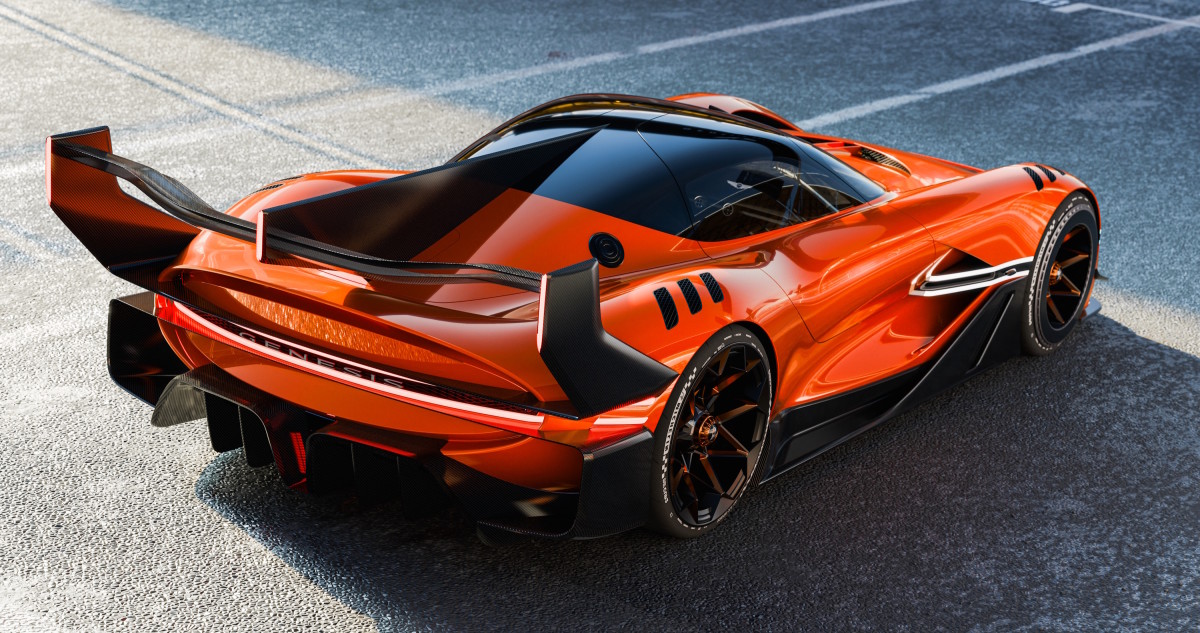
South Korean automaker Hyundai (HYMTF) has been dipping its toe into nearly everything eco-friendly lately.
During its keynote at the Consumer Electronics Show in January, the automaker laid out plans for an ecosystem developed around producing, supporting, and using hydrogen fuel throughout the company. This ecosystem includes extracting hydrogen molecules for fuel from food, sludge, livestock manure, or breaking down waste plastics.
Related: Hyundai and General Motors join forces to revolutionize future cars
Additionally, Hyundai announced last week that it is seeking to collaborate with General Motors (GM) on passenger cars and commercial vehicles powered by internal combustion engines, EVs, and hydrogen, using more efficient supply chains and shared technologies to reduce costs and development time.
With all these plans to prepare itself for a future without gasoline cars, Hyundai is taking an unusual, high-octane pivot that might make it better suited for a fight against Ferrari rather than Tesla.

Genesis
Hyundai vs. Ferrari?
In a recent announcement, Hyundai's motorsport division announced that it intends to expand its racing efforts into one of the most prestigious and hyper-competitive racing divisions.
As a team under its luxury Genesis brand, Hyundai intends to compete in the World Endurance Championship under the LMDh class; the top level of endurance racing.
This move would see the South Korean automaker compete head-to-head in tough, soul-crushing, and grueling races like the 24 Hours of Le Mans against other premium brands and some of the biggest sports car manufacturers, including Acura, Cadillac, Porsche, Lamborghini, BMW, and the current 24 Hours of Le Mans champion: Ferrari.
Currently, Hyundai competes in the World Rally Championship and in the TCR touring car series with race cars based on their road cars. In a statement, a spokesperson for Hyundai Motorsport and Genesis said that its decision to compete against some of the world's most cutthroat racing teams presents a great opportunity to develop better luxury cars.
“We have carefully analyzed LMDh and found it to be a natural fit for our motorsport ambitions and a valuable platform to drive the development of future mobility technologies for road cars,” the spokesperson said.
“Endurance racing presents an unparalleled opportunity to showcase Genesis’ cutting-edge technology, design philosophy and performance-driven character in a highly competitive arena. This project is part of our broader vision for the future of mobility.”
More Automotive:
- The Toyota Crown is a masterclass in cheap, quiet luxury
- Ford making radical change that might anger loyal consumers
- Gavin Newsom's 'EV mandate' is under U.S. Supreme Court threat
A roadmap to high-performance hybrids
Though it may be purely coincidental, Hyundai's decision to get into endurance racing conveniently comes at a time when it is ramping up its hybrid game.
Late last month, the automaker laid out its vehicular offensive at its CEO Investor Day, which includes a significant investment in hybrid cars and the introduction of extended-range electric vehicles (EREVs) to the company's portfolio alongside a complete portfolio of traditional battery-electric vehicles.
Although the LMDh prototype cars that Hyundai will be tasked with building for Spa and Le Mans are completely different machines from the Sonatas, Santa Fes, and IONIQ 5s they build for its value-minded customers, its experience it may take at Le Mans may lead them to build better hybrids.
Related: Auto tech leader uses Le Mans race car technology to power new generation of hybrids
The World Endurance Championship is defined by races filled with different classes of cars that have to follow different rules. To compete in the top division, known as the LMDh class, manufacturers have to use a common chassis, gearbox, and a hybrid system developed by Bosch.
Bosch's hybrid system has more than 350,000 race miles and 650,000 combined race and testing miles on racetracks across the world. In June, the auto parts supplier announced that it is developing hybrid systems for consumer-grade cars inspired by the ones used on the race track.
By working alongside Bosch, Hyundai can eliminate costs in hybrid car development. These savings can help make hybrids more enticing for Hyundai's cost-conscious consumers.
"If you're decreasing the cost for the end consumer, you can increase the uptake of these technologies," Bosch director of systems engineering Mohammad Fatouraie said.
Hyundai Motor, which trades on OTC markets as HYMTF, is up 2.97%, last trading at $66.60 at the time of writing.
Related: Veteran fund manager sees world of pain coming for stocks







